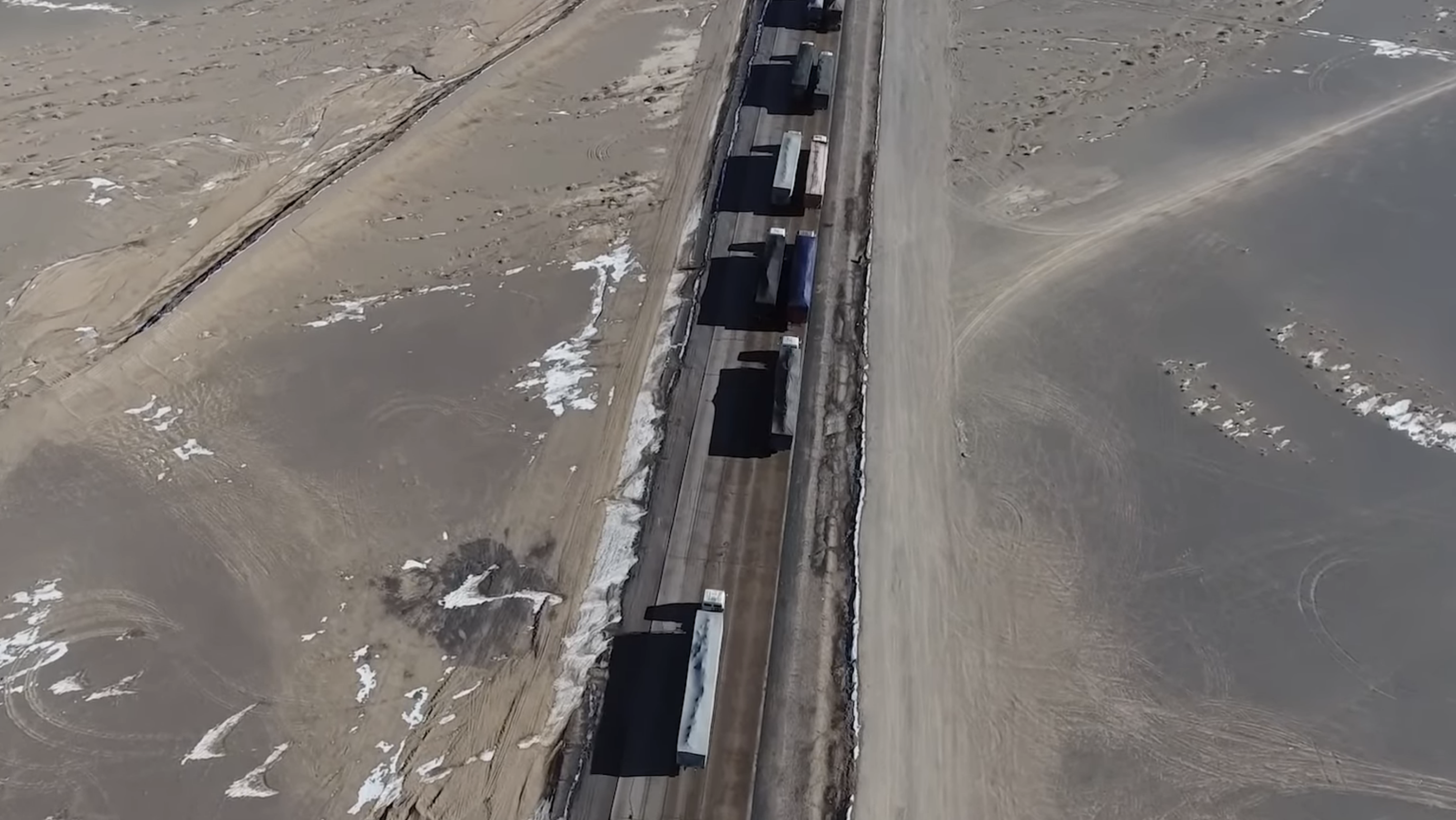Meet The Woman Who Lived Out Of Her Truck On Mongolia's Coal Highway
Follow the journey of Mongolian truck driver Maikhuu Sengee, in documentary film The Lady of the Gobi.
The Gobi Desert is home to Mongolia's largest coal basins, which are critical to the country's industrialization. Impossibly long and desolate stretches of road connect coal mines in the Gobi to China, and thousands of truckers travel along Mongolia's coal highway ferrying precious carbon loads. One of these truckers is a woman named Maikhuu Sengee, otherwise known as the "Lady of the Gobi."
Go watch this documentary on Aeon about her life on the road as one of the only women — if not the only one — who's spent years away from family to drive a loaded truck across the desert. Set aside about 25 minutes to follow Maikhuu through the lens of filmmamer Khoroldorj Choijoovanchig. I swear it's worth it:
The documentary, titled The Lady of the Gobi after Maikhuu herself, details how Mongolia has undergone massive migrations as it went from an agrarian society to an industrialized one. The country's resources, including coal, have been exported to its southern neighbor China for decades.
This flow of goods and wealth pulled the people of Mongolia toward urban centers and the desert alike. Maikhuu's family stayed behind in the capital of Mongolia, Ulaanbaatar, while she went south to the Gobi Desert, then further still to the Chinese border. But the global pandemic made life almost impossible for many truckers, who abandoned their big rigs in the desert and moved on.
But Maikhuu stayed; the trucker lived out of her cab for days and weeks at a time, between stretches of living in quarantine camps as she made her way to and from the border of Mongolia and China. She'd been a hairdresser before becoming a driver, and the documentary follows Maikhuu even as she helps fellow truckers out with a haircut now and then.
The truck drivers eat, sleep, shower and wash clothes at makeshift truck stops like nomads who shepherd machines through the desert. Maikhuu's journey sees her oscillate between the joy of driving through Mongolia's coal highway — a road that's brought life to many, and has been her own life for the last seven years — and the sadness of being far from home on a road that never ends.

